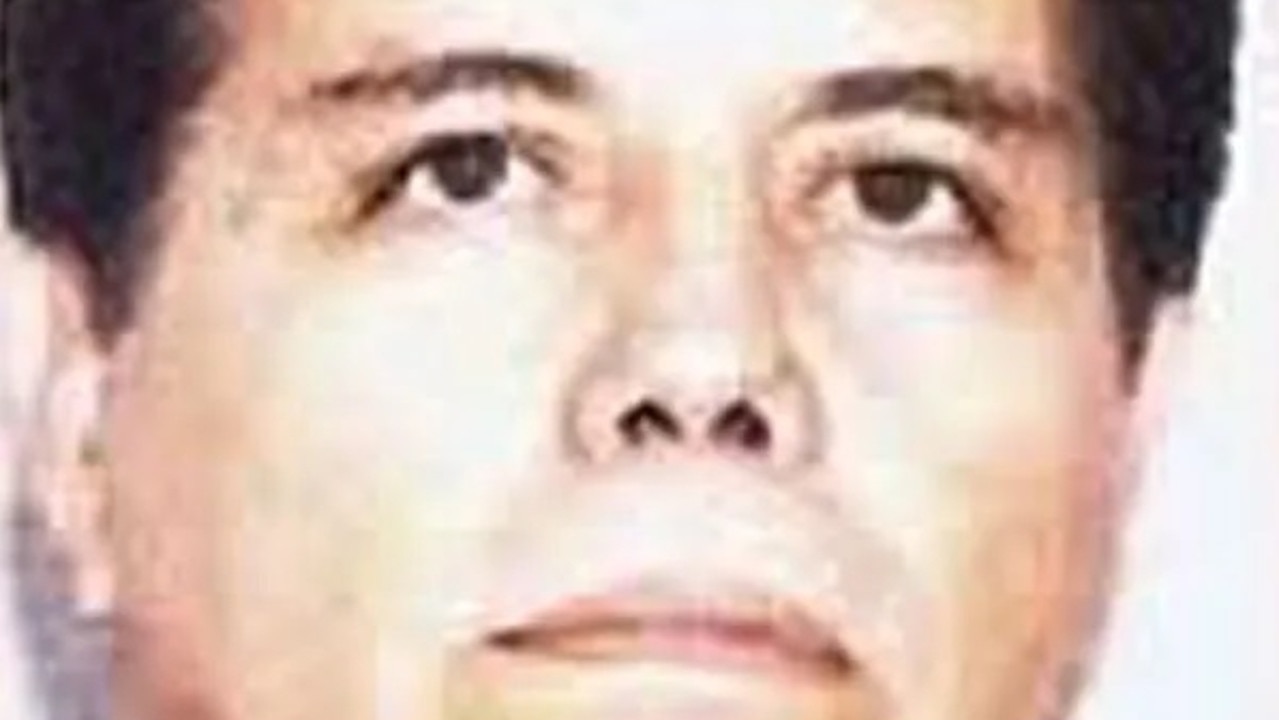Narcos on the front line: Jose Carvajal lost legs trying to stop cocaine crop
Many Aussies are obsessed with snorting cocaine, but it costs lives. Colombian National Police patrolman Jose Carvajal explains how he lost his legs. See the video.
Exclusive: He pleaded with the doctor to save his left leg, but in the end lost both.
Colombian National Police patrolman Jose Fernando Carvajal, 27, is the collateral damage of the war against drugs.
He was clearing a path to a cocaine crop with his sniffer dog in the jungle in Antioquia, northwestern Colombia, when he stepped on a landmine.
Drug cartels determined to stop police destroying their crop had booby-trapped the plantation.
They then began peppering his position with heavy machine gun fire as Carvajal waited 30 minutes for a helicopter rescue.
Carvajal’s police colleagues provided covering fire as they fought to get him to safety at a hospital in Monteria, northern Colombia.
“The doctor who saw me, I asked him to please save my left leg because the right leg I had lost beneath my knee,” Carvajal, who spent 15 days in a coma, said.
“But this antipersonnel mine had different substances like animal faeces and other things like nails and glass splinters used by outlaw groups,” he said.
The deadly mixture led to an infection; with doctors having no choice but to amputate both legs almost to his waist.
Watch episode 2 of our Narcos on the front line docuseries above.
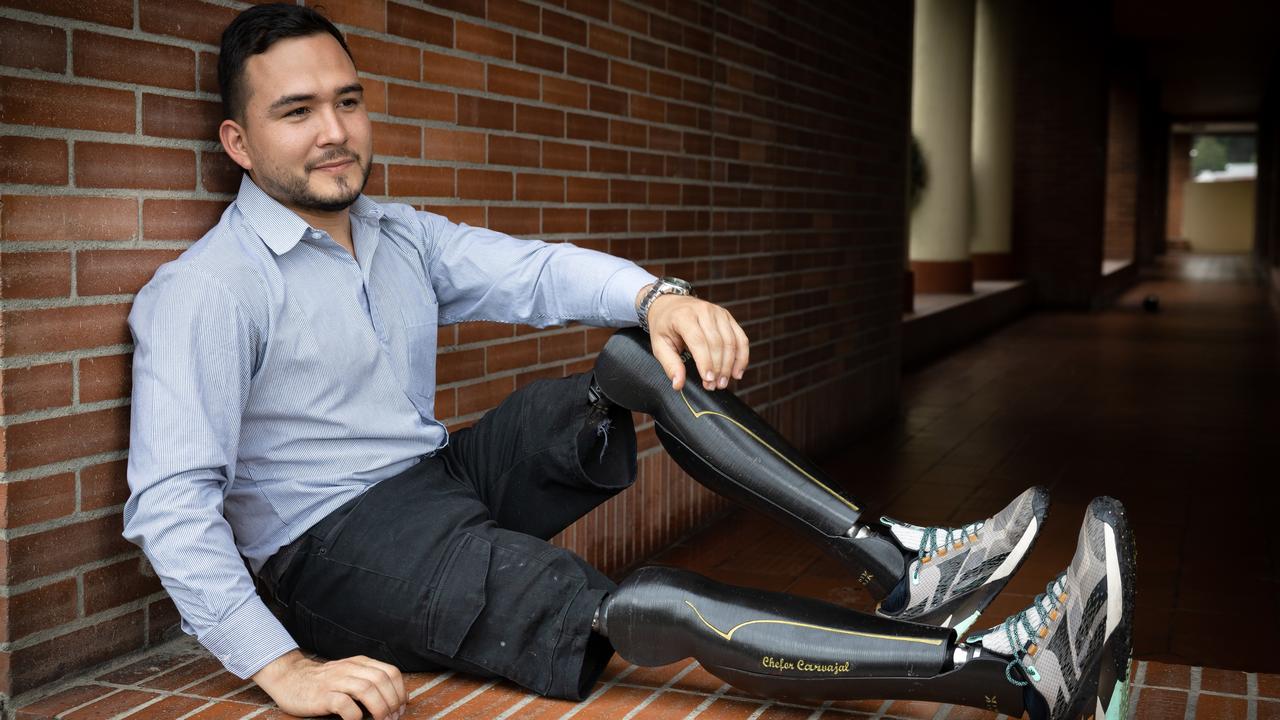
“This is the work that we do in eradication,” Carvajal said.
“We’re not only faced with the outlaw groups and the terror of the visible enemy. We know at certain points there’s an outlaw group, but we cannot possibly know whether there are landmines.”
Carvajal bears the scars of the war on drugs but refuses to be defined by his injuries, leaving hospital three days after he woke.
“I focused on forgiving, on recovering, and not about thinking of the bad things that had been done to me, but rather that I needed to get ahead,” Carvajal said.
“And I believe that decision was very important to heal not only physically, but also to start healing my heart.”
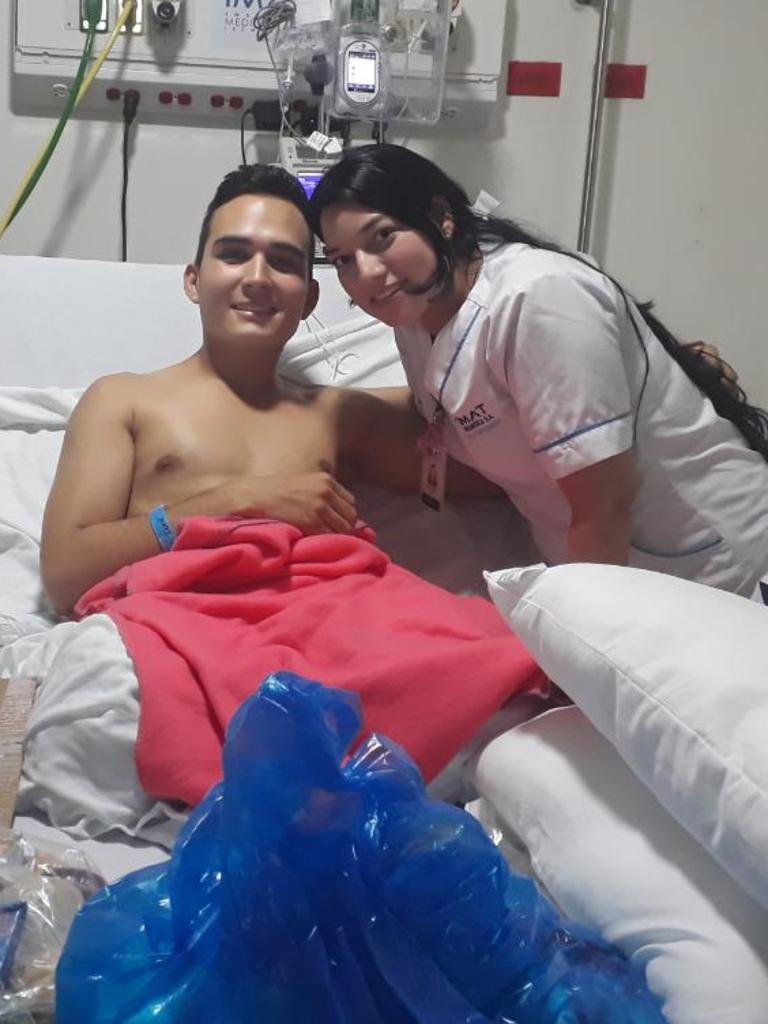
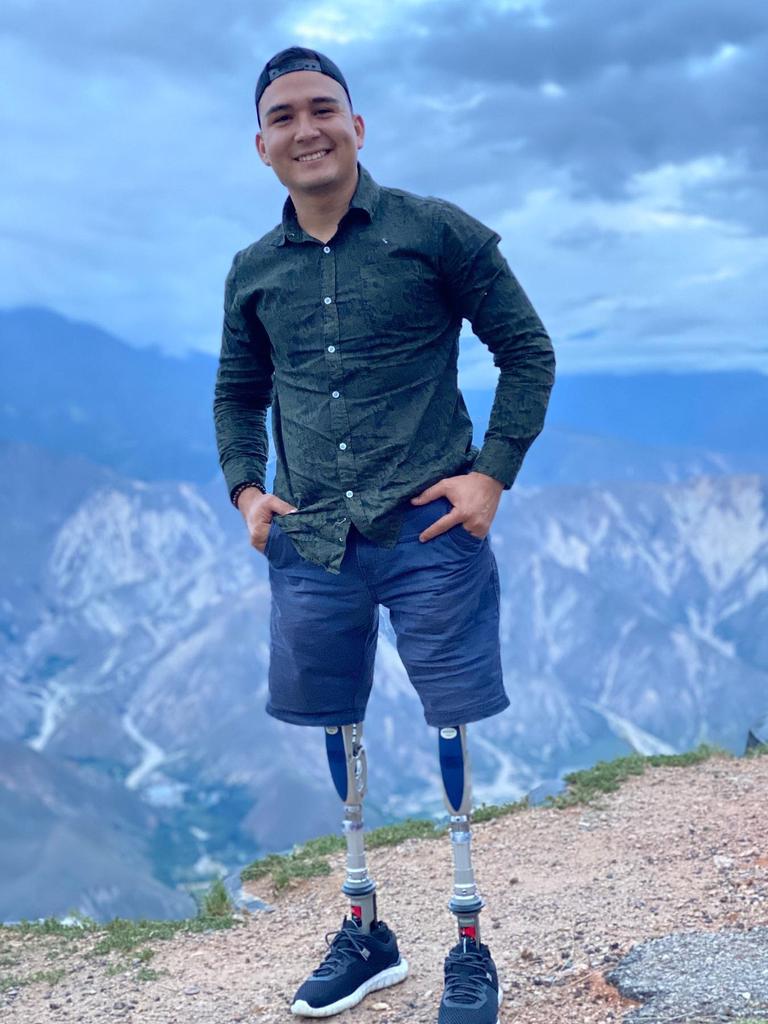
Carvajal was speaking to this masthead about the injuries he suffered on November 10, 2018, in the bar of the Colombian National Police social club in Bogota, the nation’s capital.
He has become a hero among his 170,000 colleagues for not only surviving but inspiring them to keep fighting.
Colombia’s top cop Director General William Rene Salamanca, who flew into the social club via helicopter, stopped to take photographs with Carvajal on the day of his interview.
Carvajal said drug users needed to know the consequences of their choices.
“I believe that this is an important time to make everyone aware but particularly the people from Australia that drug use does not only affect the person who consumes the drug,” Carvajal said.
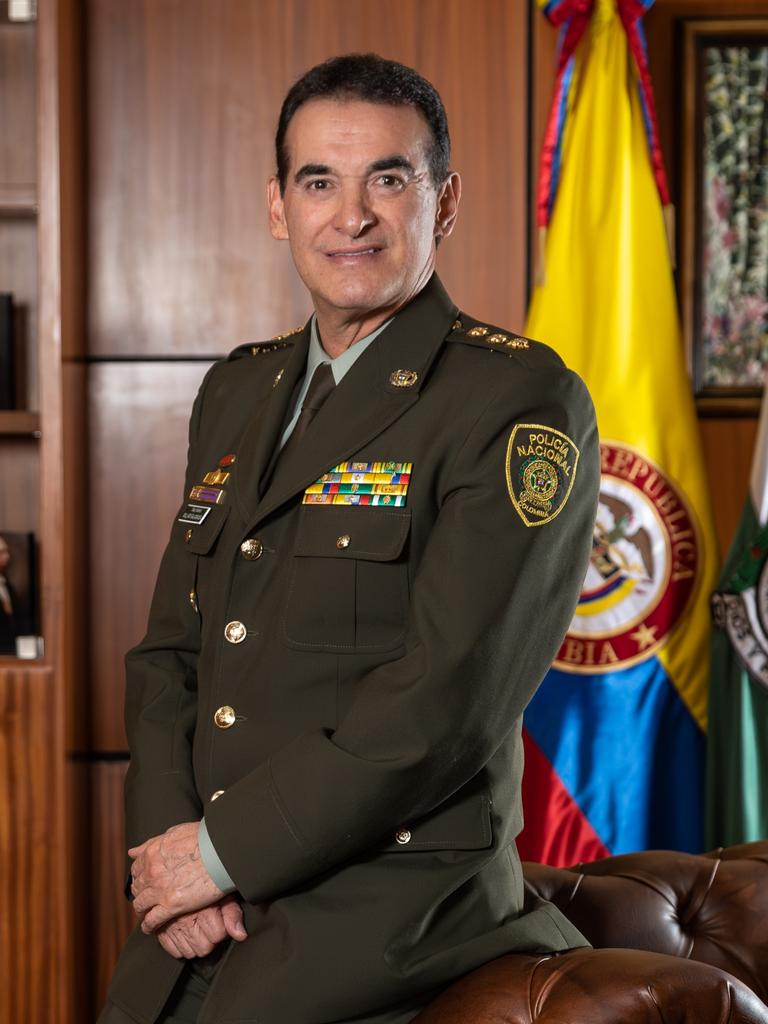
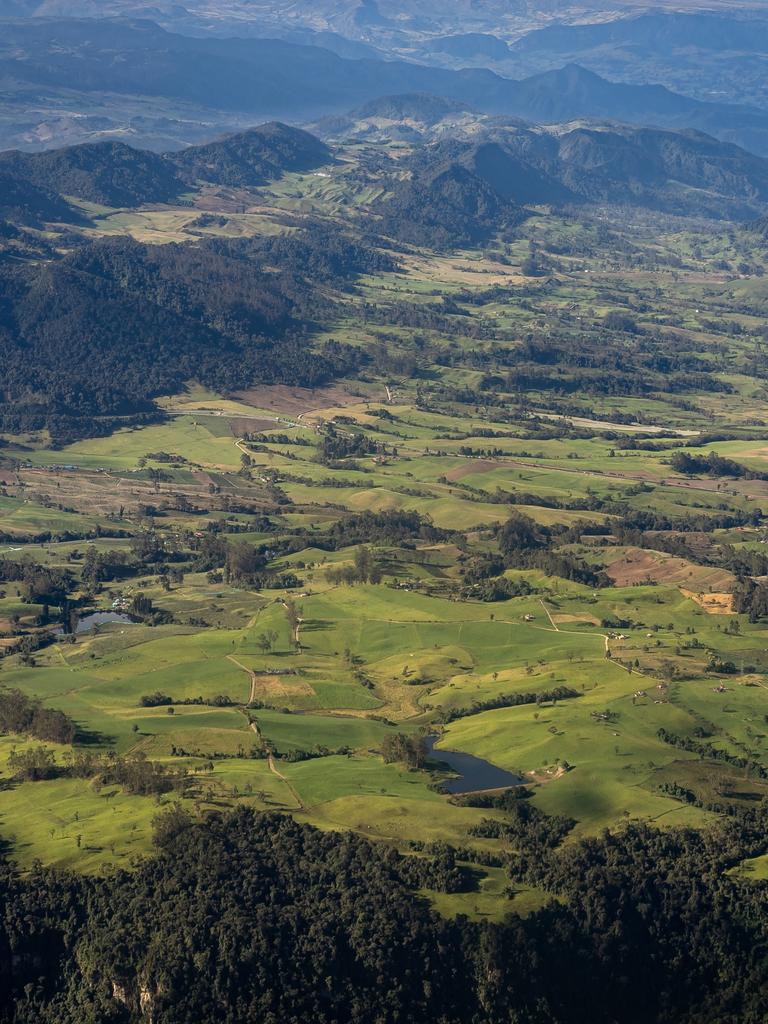
“There are others who are fighting and who are fighting with our lives, with our physical integrity against drugs.
“And you should also become aware of the fact that using them brings negative consequences for yourselves, for your families, but it also brings consequences for all of those who risk our physical integrity every day to fight drugs.”
Carvajal now spends his time delivering speeches to his colleagues and to community groups.
He has begun a law degree and volunteers with indigenous people in the mountainous regions of Colombia.
“I had the fortune of having a second chance to be able to continue fighting,” he said.
Carvajal, sadly, is not the cartels’ only victim.
A memorial “tree” sculpture outside the Colombian National police headquarters lists the names of hundreds of officers and the dates of their deaths on brass tags.
They were casualties of the drug cartels, but in some way, they were also victims of geography.
More than 70 per cent of the cocaine on Australia’s streets comes from Colombia – it only grows in the Andes mountains which also cut through the border regions of Peru and Ecuador.
Colombian helicopter pilot Maximiliano Azuero Garcia was among the police fatalities in the cartel wars.
He was killed in a crash on May 30, 2021, when he was on an operation to “destroy drug labs”.
Garcia’s name was engraved on a memorial in the secure section of Bogota’s international airport reserved for the Colombian National police aircraft fleet.
He was survived by his wife, Colonel Carolina Jaramillo, who remains in the Colombian National Police, and their children Andres, 13, and Maria, 7.
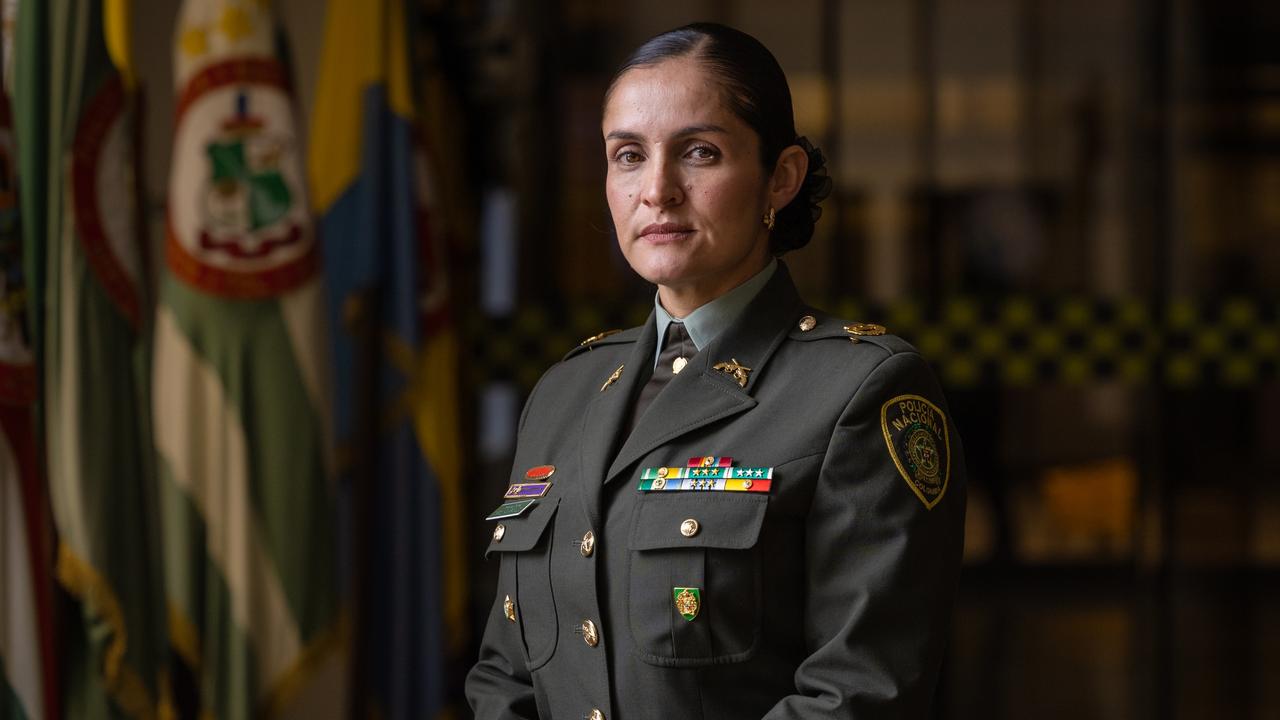
“It’s very difficult as a mum to have to deal with this unexpected loss,” Colonel Jaromillo said in a translated interview at Colombian National Police headquarters.
Her children knew the risks their father took in his eight years flying helicopters over cartel controlled areas, but she said his death was still a shock.
“As a pilot, he was helping in the war against drugs, helping other children that might have been initiated in this problem (illegal drugs) that is so harmful to human beings,” Colonel Jaramillo said.
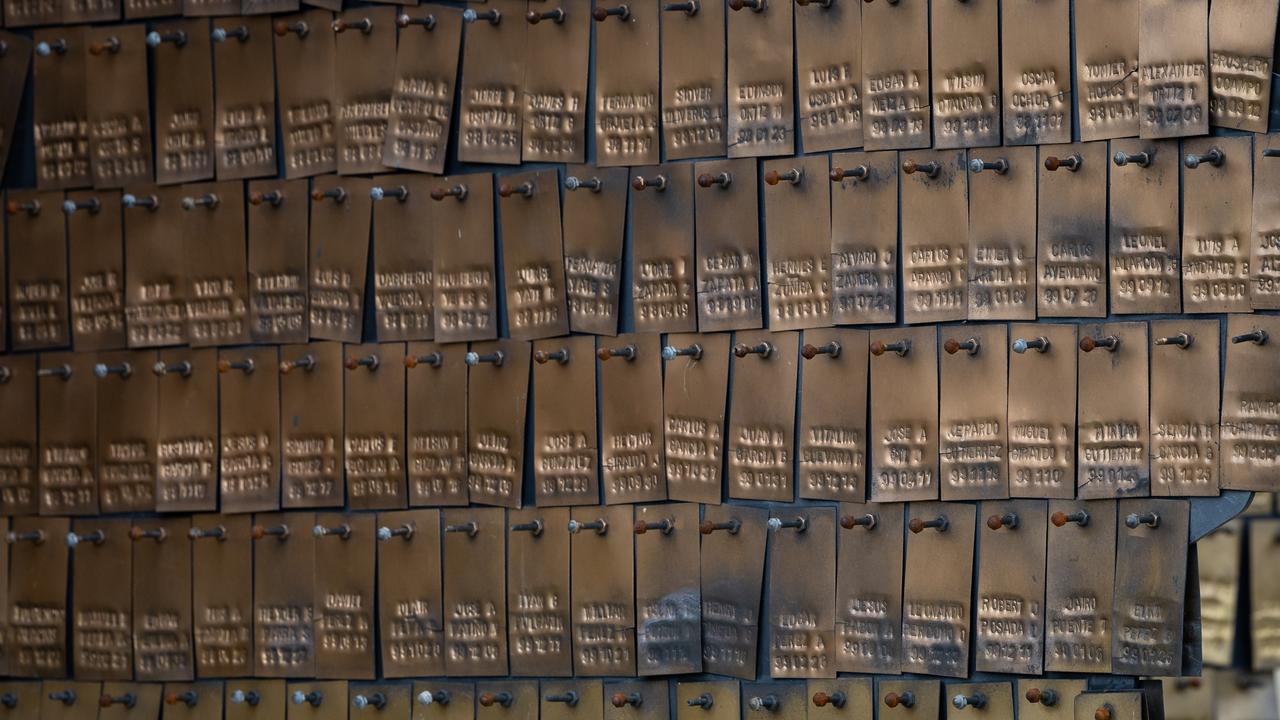
“Understanding the circumstances of what happened can help my children start to heal.”
This masthead met dozens of police during our week crisscrossing the country.
When translators were busy, police sometimes chatted with us through Google apps and our limited Spanish.
One officer asked over Google translate what Colombia was known for in Australia.
He was visibly disappointed when told most people only know about Colombia for its drug trade.
That’s something police there have been trying to change, no matter how insurmountable the challenge may seem.
“All the policemen and policewomen in Colombia are brave human beings,” Colonel Jaromillo said.
“They are working for human dignity and defending our rights, especially people like my husband who put their lives at risk every day.
“But we wake up every day committed to not just our institution, but also our families and our fellow countrymen.”
Originally published as Narcos on the front line: Jose Carvajal lost legs trying to stop cocaine crop


